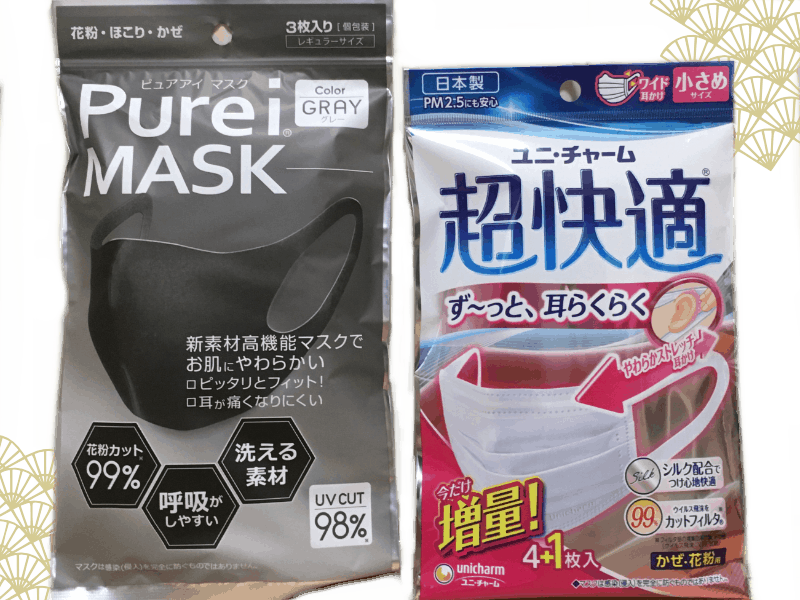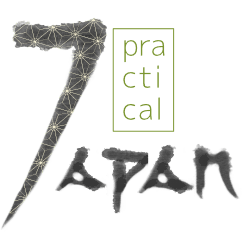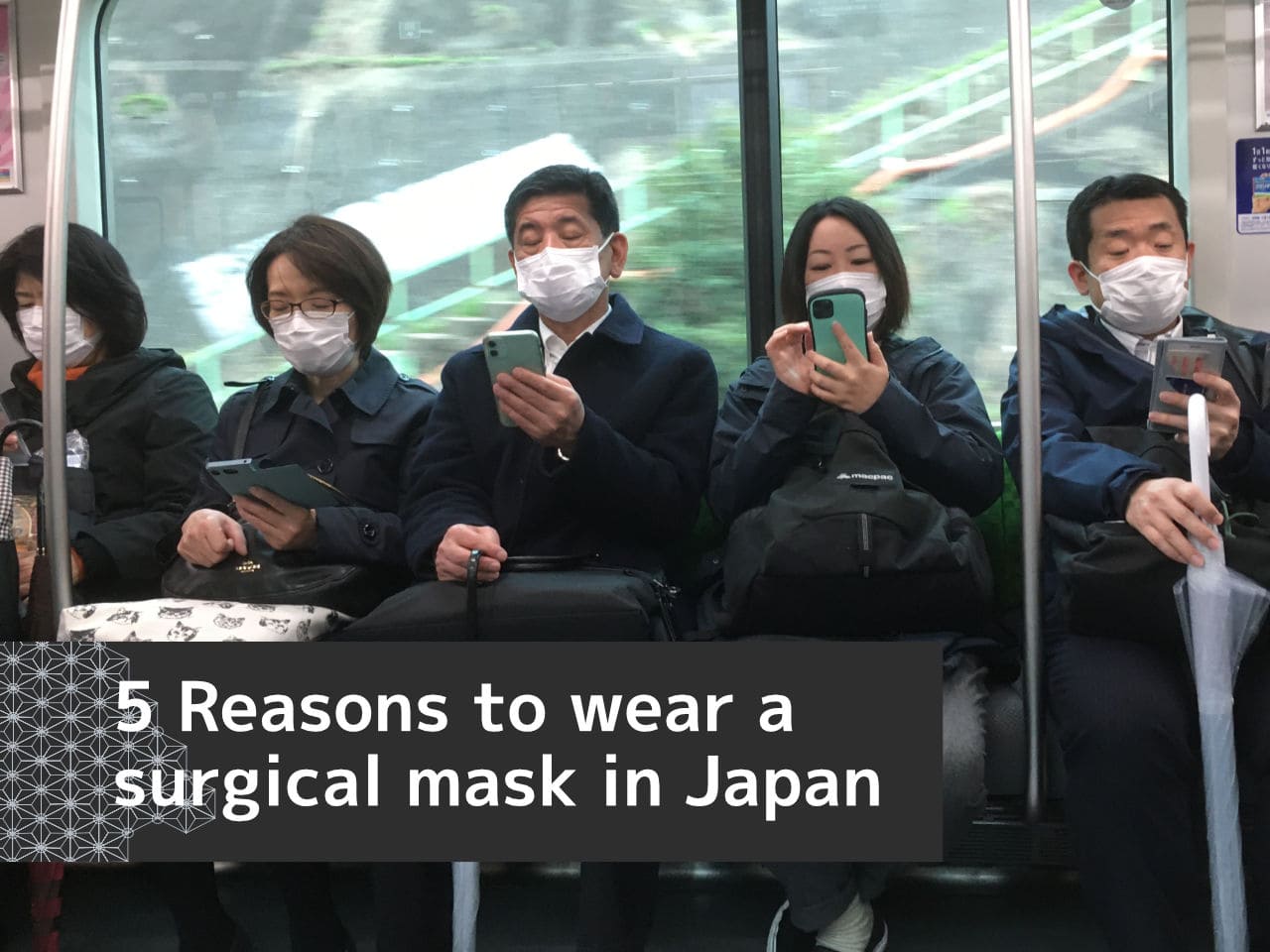Japanese people seem to be wearing masks all the time – even before the coronavirus pandemic. Many foreigners ask themselves whether they should do the same. I personally find masks to be both uncomfortable and difficult to breathe through, not to mention the unpleasant smell they seem to develop after a couple of hours. There are also voices from health experts regarding the surgical masks’ efficacy as an infection preventive measure… So, why do the Japanese people are so fond of them? And should we, the foreigners, also get into the habit of wearing them?
Based on my observations and conversations with my Japanese friends, the masks are used mainly for health reasons and as part of social etiquette.
1 Prevent infections
It is believed that a surgical mask, though not 100% effective, can stop droplets containing the virus/bacteria that cause your infection from spreading and infecting others. The custom first appeared during the 1918 Spanish flu pandemic. Mask use was recommended by the Japanese Ministry of Health, Labour and Welfare as protective measure during other outbreaks over the following decades.
The WHO guidelines regarding masks say that those who have symptoms or are in close contact with infected people should wear masks. Some Japanese are taking this advice a step further and put on a mask when commuting or just leaving their houses even when they themselves don’t have any symptoms. They do this mostly to protect themselves, just in case they come across someone who is a carrier or they themselves are in the incubation phase of the flu. In a country as crowded as Japan, practicing social distancing can be a challenge, so the ‘common sense’ approach is to do whatever little things help.
2 Allergy and pollution
Another popular reason for the mask is pollen allergy. Masks can help limit the amount of allergens a person breathes in. According to the Japanese Ministry of Health, Labour and Welfare, about 25% of Japanese people suffer from hay fever. For some reason many foreigners don’t suffer from it, but some do develop symptoms if they stay in Japan a couple of years.
Recently, pollution has become more prominent in the media and more Japanese are conscious of the impact of such pollutants as Asian Dust, PM2.5 and exhaust gasses. Mask makers often advertise this function to attract customers outside of the flu and pollen allergy seasons.
Some people wear masks in the summer to protect their faces from the strong UV radiation and their throats from the dry air-conditioned air.

3 Good manners and social pressure
Wearing a mask in public when you are sick and have symptoms such as cough or sneezing is seen as good manners here in Japan. Starting from 2009, media portrayals of mask-wearing as a desirable and responsible behaviour stimulated many companies to encourage their employees to wear masks during times of increased public health risk. By having employees wear masks, the companies project an image of being respectful and caring towards their customers’ health.
In response to the current coronavirus outbreak my own employer provided masks to all employes and requires us to wear them during commute and working hours. Masks are also given out to the customers!
4 Beauty and fashion
With masks becoming widely accepted in the society, some people resort to wearing them for purposes other than allergy- or cold prevention. Those who feel self-conscious about their weak chin, uneven teeth or not-so-fresh breath after a night out don a mask to hide their faces. Some women use them when they don’t want to bother with full make-up: with a mask, you can just do the eyes and you’re ready to go! There are also various shapes and colorful designs available for those who just want to make a fashion statement.
5 Social anxiety
For those who wish to distance themselves from the society’s prying eyes and judgements, mask can act as a shield. In serious cases people can even become unable to go out without wearing a mask due to feeling exposed!
Wear it or not? Your choice!
I personally choose to wear a mask only if I have symptoms such as coughing or sneezing. I appreciate the consideration of others in similar situation who decide to wear a mask. Despite the unclear evidence as to the efficacy of wearing a mask as a preventive measure for infections such as flu and common cold, it does seem to give me a sense of security.
Do you wear surgical masks? What do you think of this Japanese custom?
Let me know in the comments!
References
Burgess, A. and Horii, M. (2012), Risk, ritual and health responsibilisation: Japan’s ‘safety blanket’ of surgical face mask‐wearing. Sociology of Health & Illness, 34: 1184-1198. doi:10.1111/j.1467-9566.2012.01466.x
Japanese Ministry of Health, Labour and Welfare (2015), 花粉症 的確な花粉症の治療のために
The Strait Times (2017), Mask appeal: The addiction of surgical masks in Japan
WHO, Coronavirus disease (COVID-19) advice for the public: When and how to use masks
Please share
If you have found information in this post useful or interesting, please like it or share it on social media. Thanks!

